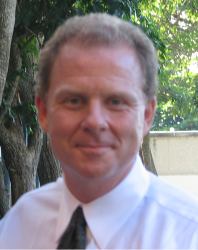Like many volunteer departments, he started his path with no financial budget to speak of. He had a vision however, that he could build on small, early successes and grow continually from there. He has not only found a way to make ends meet, but grow from roots in a youth oriented magazine he founded as a teenager to a multinational corporate powerhouse and world leader. Your volunteer engagement doesn’t have to grow to the size of Branson’s employee base for his path of layering new successes on previous ones to be a source in innovation for you.
He has always maintained a “why can’t we do it” attitude that has also existed at the roots of so many volunteer efforts (despite an ongoing push in the sector to encase this attitude in bureaucracy… but I digress). He has, in many occasions, been the underdog that has demonstrated what is truly possible, despite being told it would never work. Branson was challenged by dyslexia, had difficulty learning to read, found himself at the wrong end of more than one scholastic whipping for failing in school, and when he got his first business off the ground as a teenager, it was halted by a postal strike far from his control. Somehow he rose above all of these challenges to achieve significant business, personal and humanitarian successes.
We can’t accomplish everything we might want with our volunteer engagement and sometimes success in one area means taking resources away from another area and acknowledging a focus that means some desirable outcome won’t be met. Branson has had to make many difficult choices along the way, such as selling off one business to support the larger success of another.
His successes in life seem to come from (among others things) commitments to:
- Giving people what they want (when existing companies seem unwilling to do so) – Realizing that people (many of them youth) could not get approved for long term mobile phone contracts, he built the Virgin Mobile brand on meeting that need and pioneered the mobile pay-as-you-go concept.
- Never giving up – When a massive postal strike shut down his ability to ship the record albums he was selling, he shifted distribution to retail shops.
- Doing good – Virgin is committing substantial amounts of money to create greener fuels. Although it will benefit Virgins transportation companies in the long run, Branson sees decisions like this as imperative by all businesses if we are going to have a future to do business in at all.
- Being Innovative – In launching the music publishing arm of the Virgin companies, Branson signed the then unknown Mike Oldfield (debut album Tubular Bells included a track that became part of the Exorcist sound track) and the Sex Pistols because no one else would as they were too much like trouble makers. Both of these acts were an important piece of the foundation that grew into the powerhouse Virgin Music is today.
- Going for it – While finishing up a vacation, the flight operated by a tiny airline that was to take Branson and his fiancé, along with many others off the island got canceled. They were left stranded. Branson saw a charter company plane and booked a charter flight. Charging a portion of the charter fees to each of the others stranded, he essentially booked the first Virgin Airlines flight (long before there was a Virgin Airlines).
- Having fun – He has crossed oceans in a balloon, appeared apparently naked in Times Square (dressed in a naked looking costume with a phone where you’d expect something else, to promote “nothing to hide” phone contracts) and he knows how to turn off email from time to time.
- What do we subject our volunteers to that in a Branson influenced organization they would boldly promise not do?
- What challenge have you faced that seemed to be insurmountable until someone had an a-ha inspiration that then made it all possible?
- How big could your organization’s benefit from volunteer engagement grow to be if everyone involved saw it as boundless as Branson saw his future as a teenager?

1 comment:
Sue Jones from Warrington Voluntary Action as put together a summary of the #ttvolmgrs tweets generated by this blog. You can download it at http://www.tweetdoc.org/View/55787/What-if-Richard-Branson-managed-volunteers
Post a Comment